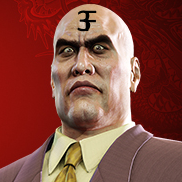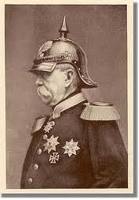Victoria 3 | Обсуждение игры
Лучшие авторы в этой теме
-
361
-

331
-

268
-

229
-

175
-

154
-
145
-

137
-

128
-

121
-

120
-
112
-

109
-
108
-

103
-
99
-

97
-

95
-

94
-

94
-
85
-

80
-

73
-

72
Лучшие авторы в этой теме
-
Pashok96 361 сообщений
-

Кодекс 331 сообщений
-

Kapellan 268 сообщений
-

Invaders 229 сообщений
-

psametix 175 сообщений
-

SvetRus 154 сообщений
-
autr 145 сообщений
-

Aurelius36 137 сообщений
-

Setrin 128 сообщений
-

Myxach 121 сообщений
-

KOROL 120 сообщений
-
DaNagi 112 сообщений
-

Daniel13 109 сообщений
-
MrNoobomnenie 108 сообщений
-

Mars-2030 103 сообщений
-
Perf 99 сообщений
-

Miles 97 сообщений
-

markus.tuliy 95 сообщений
-

Error101 94 сообщений
-

Херсонський Кавун 94 сообщений
-
Nikitoshe4ka 85 сообщений
-

Колонизатор 80 сообщений
-

Anbeeld 73 сообщений
-

Invulnerable 72 сообщений
Популярные дни
-
Окт 28 2022
129 сообщений
-
Май 22 2021
128 сообщений
-
Окт 27 2022
127 сообщений
-
Май 21 2021
121 сообщений
-
Окт 26 2022
118 сообщений
-
Ноя 1 2022
113 сообщений
-
Окт 25 2022
89 сообщений
-
Май 24 2021
88 сообщений
-
Апр 27 2022
80 сообщений
-
Апр 22 2022
78 сообщений
-
Окт 29 2022
72 сообщений
-
Апр 28 2022
71 сообщений
Популярные сообщения
Кодекс
Скачать или купить игру | Дополнения(DLC) | Патчи | Дневники разработчиков | Чит-коды Задать технический вопрос | Задать игровой вопрос | База знаний | Предложения по развитию раздела
Кодекс
i Не актуальное информационное сообщение

Razer98K
Недавно кто-то из внештатных тестеров Парадокс слил в сеть бета-версию Виктории 3. Ссылка на торрент. Предупреждение: 1) Это бета. Кривая, косая, забагованная, тормозная
MrNoobomnenie
Если бы вы последовали моему совету прочитать дневник про рабство (на который я вам даже ссылку скинул) и ответы к нему, а не стали отвечать мне стенами текста с теориями заговора и личными оскорблени
Кодекс
Тестовый клиент игры (включая патчи опубликованные ниже): (Пароль от архива: strategium.ru) ➤ Скачать RePack by Kodeks от 4.06.2022 (Включает в себя зарубежный Community Patch) В сборку входит:

Kapellan
Ну что же, они сами так решили

Sega_Smailav
Какие же фанаты параходов некомпетентные всё-таки. 3 кресты (абсолютно не интересное дерьмо) оценивают как отличную игру, а вот Виктория 3 у них говно. Просто пошли вы все к чёрту, если и вику убьёте,
newskii
-
Сейчас на странице 0 пользователей
- Нет пользователей, просматривающих эту страницу
Рекомендованные сообщения
Присоединиться к обсуждению
Вы можете оставить комментарий уже сейчас, а зарегистрироваться позже! Если у вас уже есть аккаунт, войдите, чтобы оставить сообщение через него.